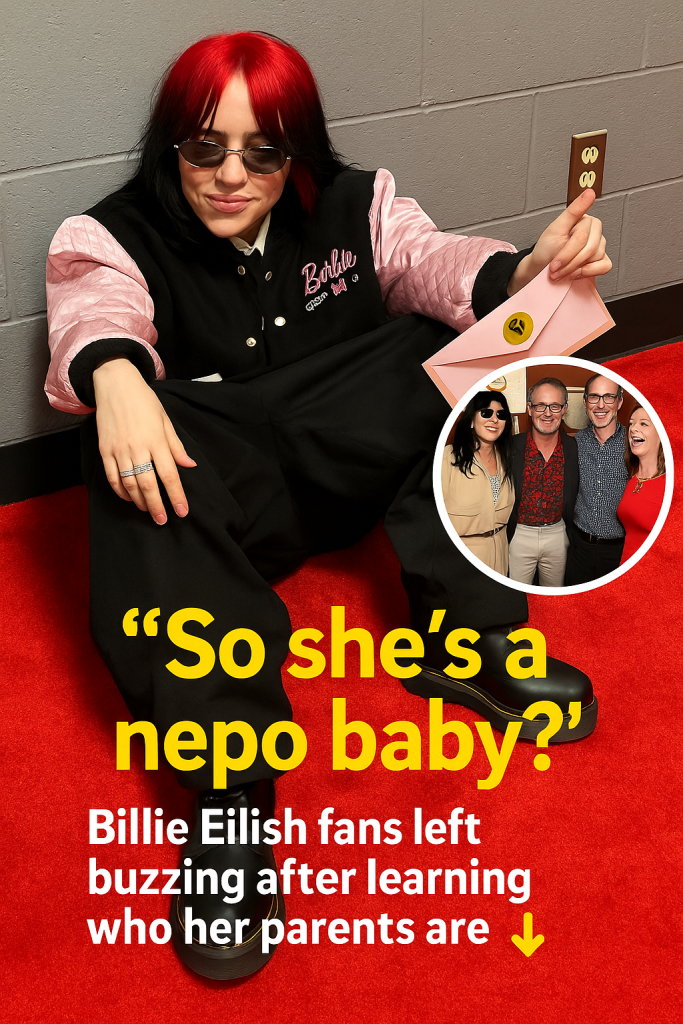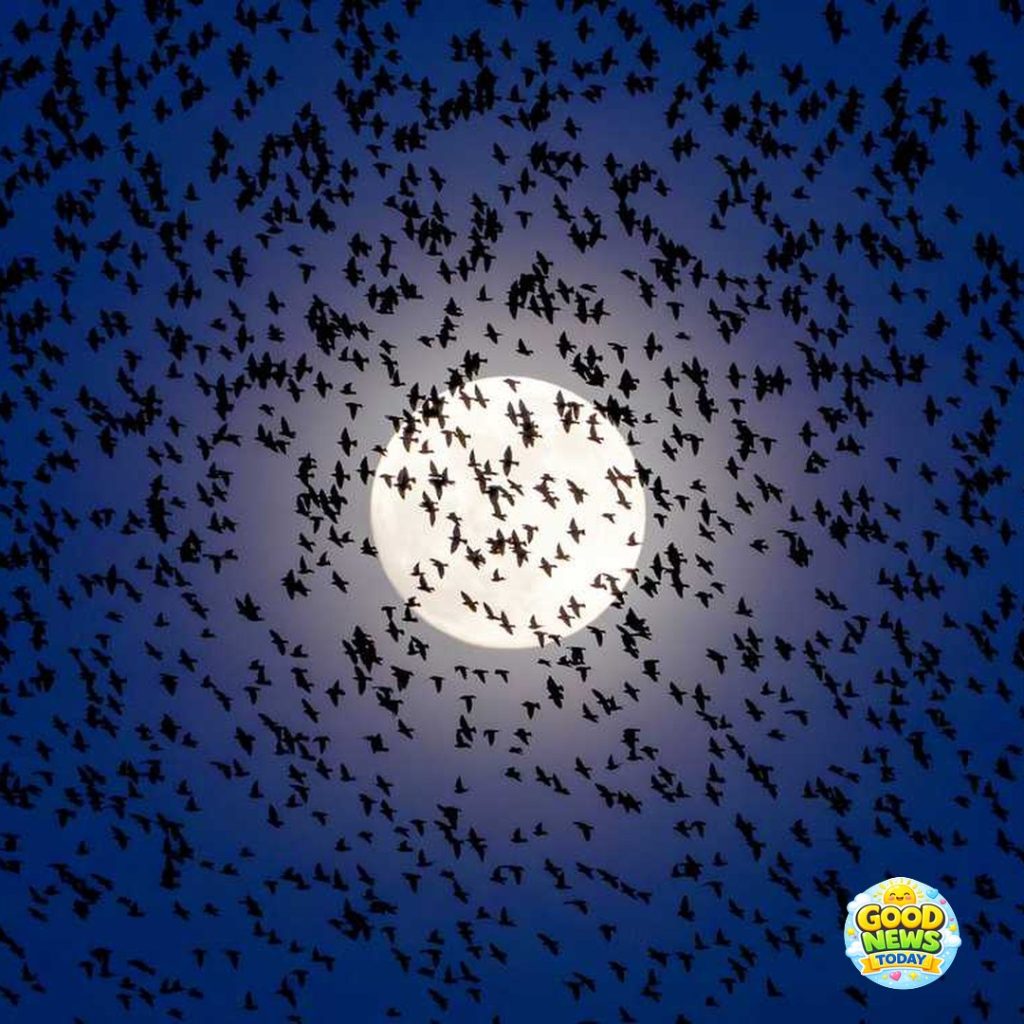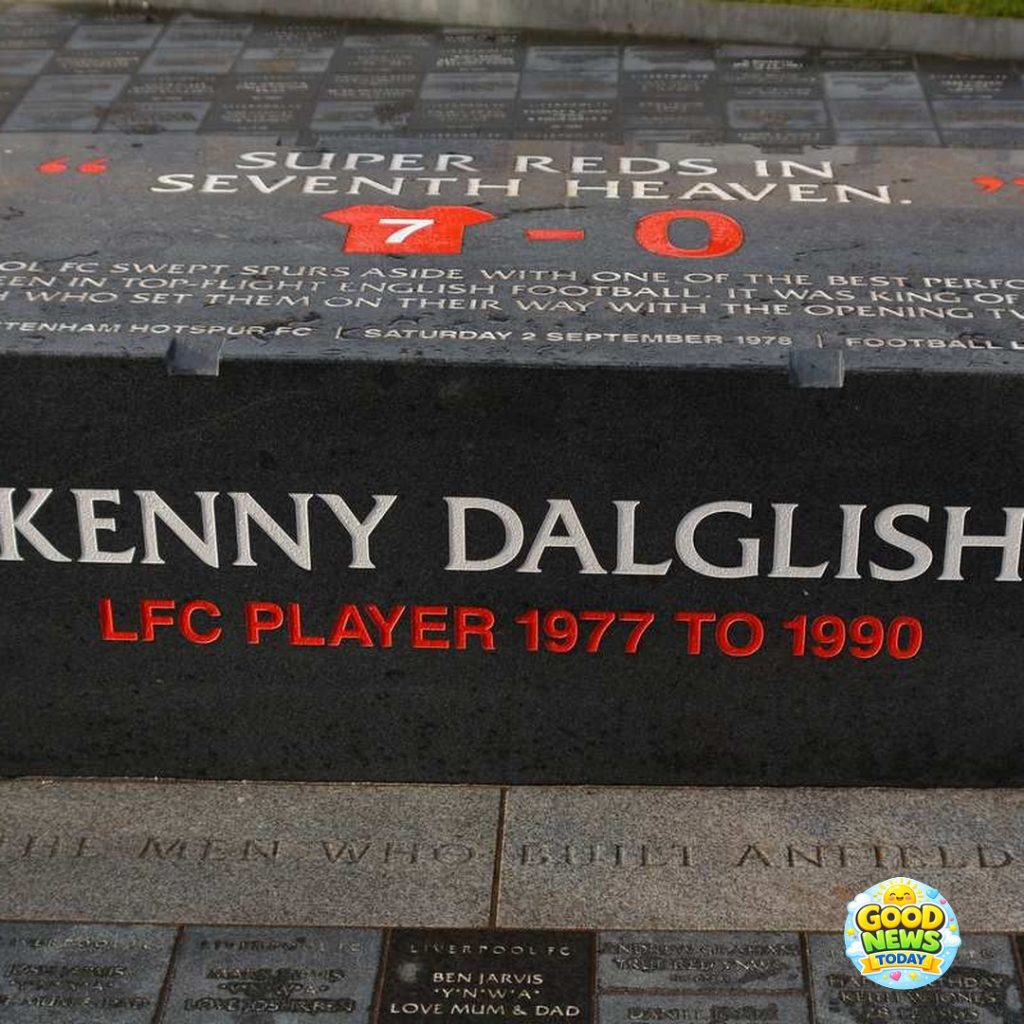Billie Eilish, the Grammy-winning pop sensation known for her haunting vocals and genre-defying sound, has once again become the focus of online conversation—but this time it’s not about her music. Social media is buzzing after fans unearthed details about Eilish’s family background, leading to spirited discussions about whether the star qualifies as a “nepo baby.”
The term “nepo baby,” shorthand for “nepotism baby,” refers to celebrities who allegedly benefit from family connections within the entertainment industry. While the label has sparked controversy and debate in recent years, Billie Eilish’s latest fan revelation has reignited this topic in a fresh way.
Users first noticed a surge in interest after an image surfaced showing Billie alongside her parents, highlighting their careers and the creative environment she grew up in. It turns out that Eilish’s parents both have strong ties to the entertainment and arts world. Her father, Patrick O’Connell, is a renowned actor and director, known for his work on stage and screen, while her mother, Maggie Baird, is an accomplished actress and screenwriter in her own right. The couple’s involvement in film and theatre provided Eilish with a rich upbringing steeped in creativity and artistic expression.
This connection has led some fans to question if her meteoric rise was influenced by her parents’ industry foothold. The comment “so she’s a nepo baby?” has been trending across Twitter, Instagram, and TikTok as fans debate the fairness of the label in Eilish’s case.
However, many supporters are quick to highlight that Billie’s success is a product of genuine talent and hard work. Starting with her breakthrough single “Ocean Eyes” at just 13 years old, Billie has consistently distinguished herself through her distinct style and songwriting prowess, earning critical acclaim and a dedicated global fanbase. Her rise did not happen overnight or solely through familial advantage.
“Having parents in the arts might have helped open doors or provided early exposure, but Billie’s success stands on its own merits,” said one fan commenting in an online forum. “Talent like hers can’t be handed down or bought.”
Others argue that while family connections may ease entry into a competitive industry, they do not guarantee sustained stardom or influence. Billie’s authentic voice, experimental sound, and fearless approach to music and public issues have crafted a unique identity that resonates far beyond any family legacy.
This discussion also sheds light on the broader conversation about “nepo babies” in entertainment—where exactly to draw the line between inherited advantage and individual achievement. Billie Eilish’s case highlights this evolving debate, illustrating how nuanced the topic truly is in today’s closely scrutinized celebrity culture.
Regardless of the controversy, Billie Eilish’s fan base remains passionate and deeply engaged, with many rallying behind her recent projects and upcoming releases. As she continues to shape modern pop music and culture, the spotlight on her personal story only adds layers to her public persona—fueling curiosity and conversations across the internet.
In the end, Billie’s journey exemplifies how background and talent intersect in complex ways, and why audiences remain so fascinated by the stars they admire.



